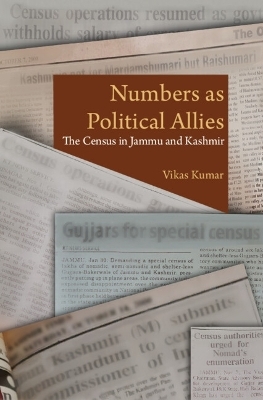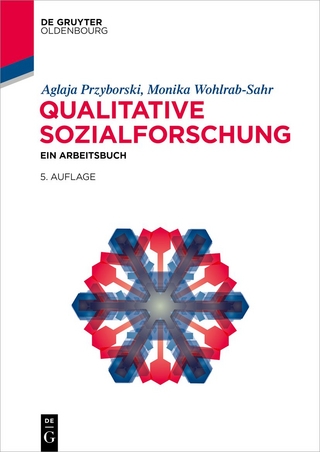
Numbers as Political Allies
The Census in Jammu and Kashmir
Seiten
2024
Cambridge University Press (Verlag)
978-1-009-31721-4 (ISBN)
Cambridge University Press (Verlag)
978-1-009-31721-4 (ISBN)
An analysis of census statistics using the case of Jammu and Kashmir that shows how data quality of census statistics is impacted by different factors. The book discusses the lifecycle of census data and proposes possible reforms to enhance trust in the census.
Numbers as Political Allies analyses the state sponsored headcounts in Jammu and Kashmir as public goods, collective self-portraits, and symbols of modernity. It explores how census statistics are impacted by their administrative, legal and political-economic contexts. The book guides the reader through the entire lifecycle of headcounts from the administrative manoeuvring at the preparatory stage to the partisan use of data in policymaking and public debates. Using the case of Jammu and Kashmir, it explains how our ability to examine data quality is limited by the paucity of metadata and estimates the magnitudes of coverage and content errors in the census process. It argues that Jammu and Kashmir's data deficit is shaped by and shapes ethno-regional, communal, and scalar contests across different levels of governance and compares its census experience with other states to discuss possible reforms to enhance public trust in the census.
Numbers as Political Allies analyses the state sponsored headcounts in Jammu and Kashmir as public goods, collective self-portraits, and symbols of modernity. It explores how census statistics are impacted by their administrative, legal and political-economic contexts. The book guides the reader through the entire lifecycle of headcounts from the administrative manoeuvring at the preparatory stage to the partisan use of data in policymaking and public debates. Using the case of Jammu and Kashmir, it explains how our ability to examine data quality is limited by the paucity of metadata and estimates the magnitudes of coverage and content errors in the census process. It argues that Jammu and Kashmir's data deficit is shaped by and shapes ethno-regional, communal, and scalar contests across different levels of governance and compares its census experience with other states to discuss possible reforms to enhance public trust in the census.
Vikas Kumar is Associate Professor of Economics at Azim Premji University, Bengaluru. His research interests are applied game theory, political economy, law and economics, and the economics of religion.
List of Figures; List of Maps; List of Tables; List of Timelines; Preface; Acknowledgements; List of Abbreviations; Part I. Introduction: 1. Debating Numbers; Part II. Counting People: 2. Counting amidst Uncertainty; 3. Inventing Boys and Miscounting Tribes and Languages; Part III. Context: 4. Anxious Majorities; 5. The Limits of Law; 6. Growth as Well-Being; Part IV. Reforms: 7. Reinventing the Census; Appendix; Bibliography; Index.
| Erscheinungsdatum | 05.01.2024 |
|---|---|
| Zusatzinfo | Worked examples or Exercises |
| Verlagsort | Cambridge |
| Sprache | englisch |
| Maße | 164 x 237 mm |
| Gewicht | 850 g |
| Themenwelt | Sozialwissenschaften ► Soziologie ► Empirische Sozialforschung |
| Sozialwissenschaften ► Soziologie ► Spezielle Soziologien | |
| ISBN-10 | 1-009-31721-0 / 1009317210 |
| ISBN-13 | 978-1-009-31721-4 / 9781009317214 |
| Zustand | Neuware |
| Haben Sie eine Frage zum Produkt? |
Mehr entdecken
aus dem Bereich
aus dem Bereich
Buch | Hardcover (2023)
De Gruyter Oldenbourg (Verlag)
CHF 48,90
ein Arbeitsbuch
Buch | Softcover (2021)
De Gruyter Oldenbourg (Verlag)
CHF 48,90


